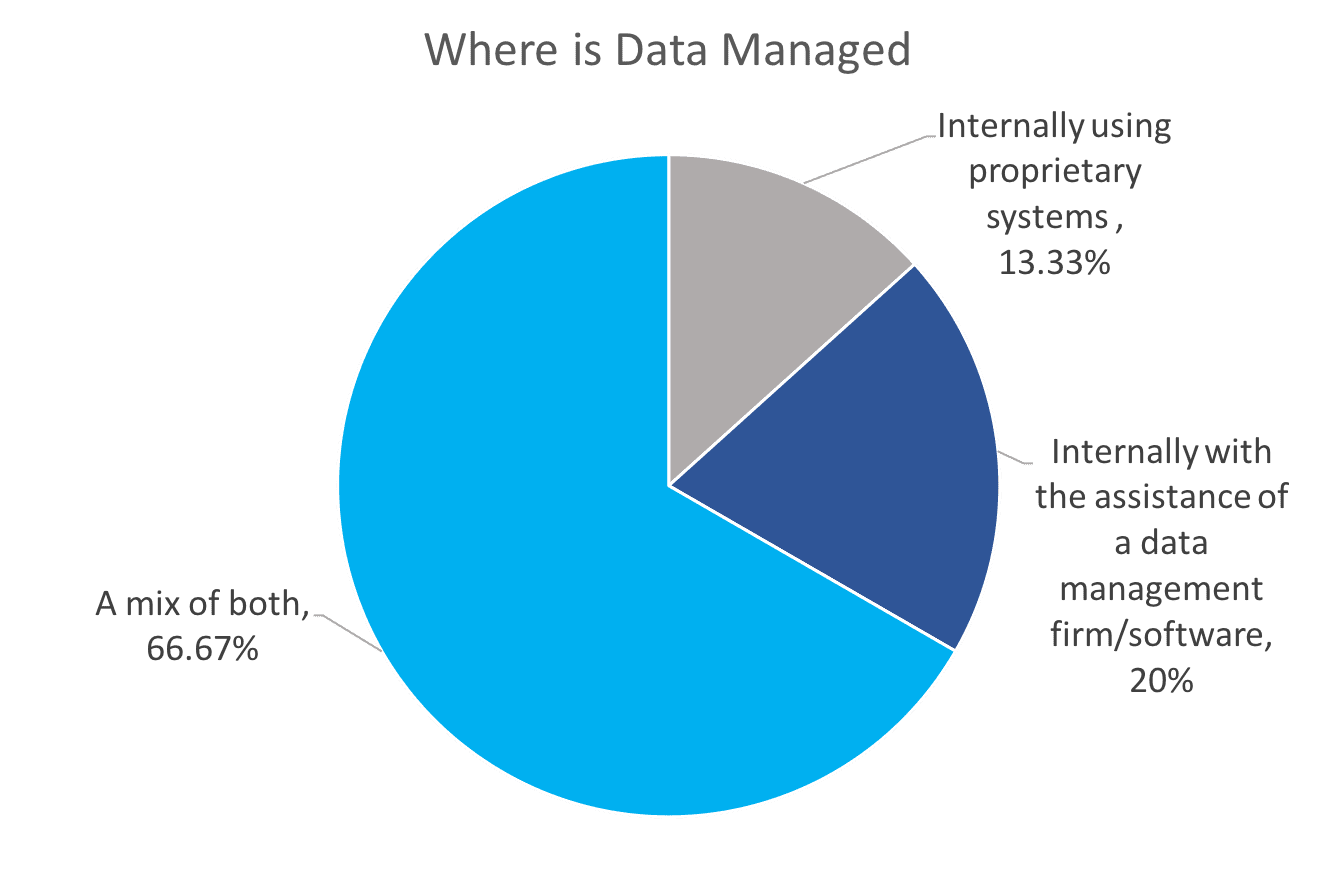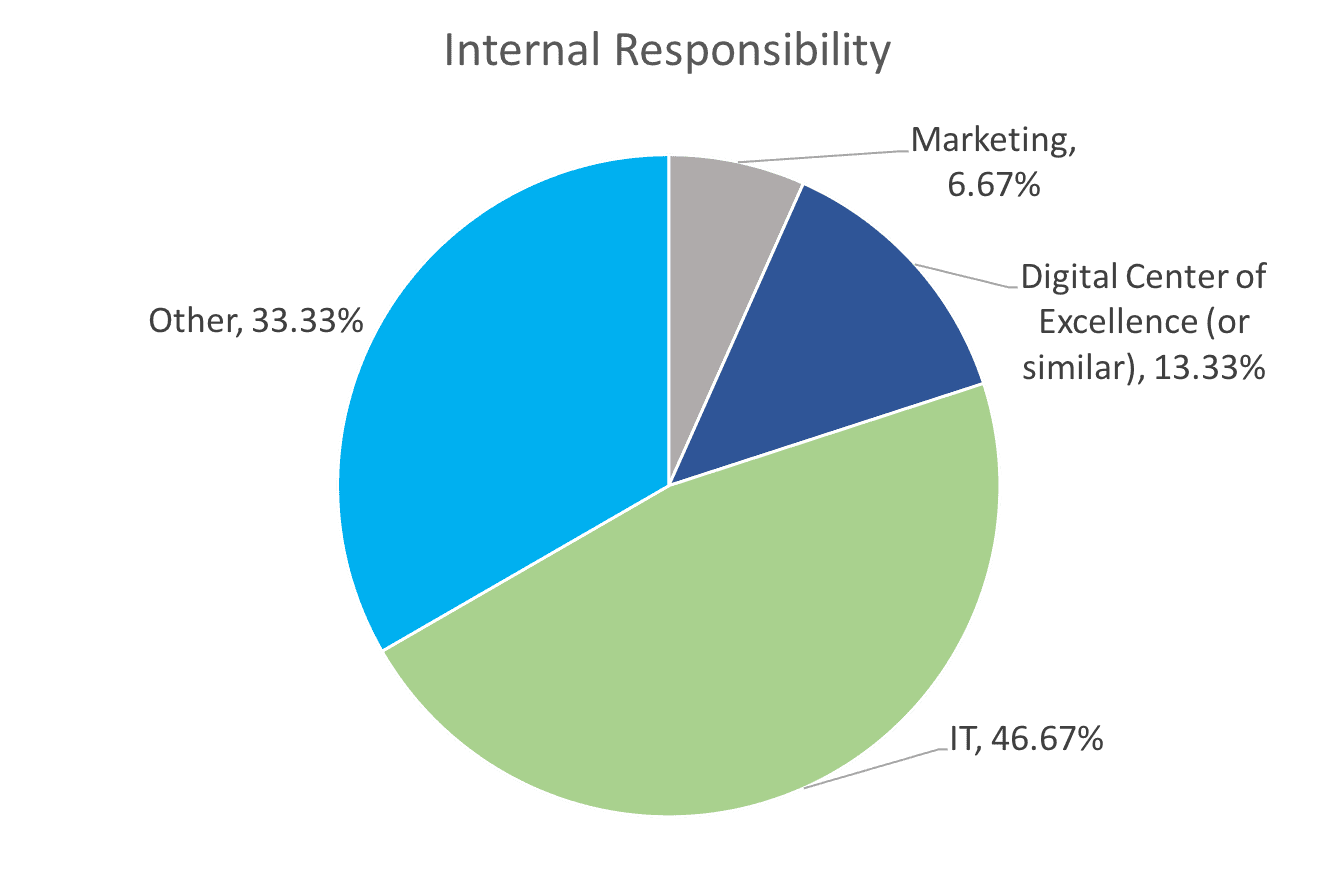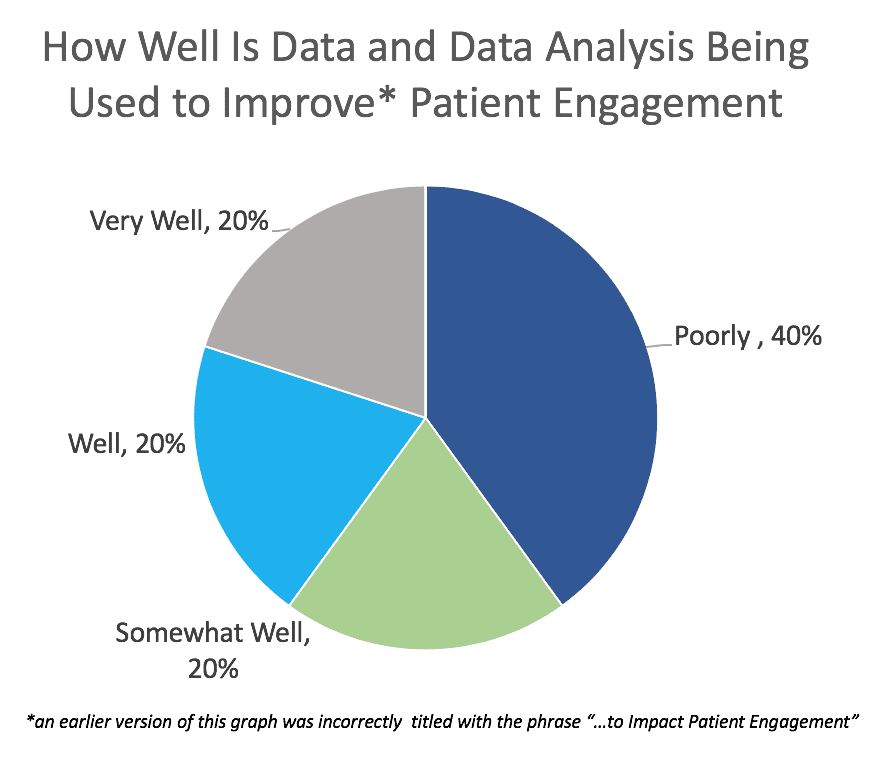
Digital Health Coalition Newsletter – January 2019


FEATURED CONTENT: How Does Pharma Manage … Data Management?
Data has been a key trend for as long as we have been collecting it, storing it, and trying to turn it into information – and eventually insight. So how is pharma handling the task of managing the data they are collecting, buying, or aggregating? We reached out to 15 different companies to ask them about how they handle data, manage it, and if it’s actually making an impact on areas such as patient engagement.

We’ll start with the positive news. Overall, just about 1/2 of pharma companies are “confident” their company approach to data management is working. Of note, no companies were very confident. On the other side of the spectrum, 1 in 4 have no confidence at all in how their companies are handling data – cause for concern in this age of data privacy and security.
Given the propensity of many pharma companies to outsource functions outside of the core business, we wanted to learn about how companies are managing their data – internally, externally, or a hybrid approach.

It turns out the hybrid approach is the most likely with 2/3 saying it’s a combination of approaches (internal/external) leading one to believe the type of data may also introduce requirements with management or reporting that only a third party may provide. That said, almost 1/3 of companies are managing their data completely on their own or on their own with third party platforms. As companies increase their investments in data and data management, a key question will be if they boost or increase their own internal teams and investments in proprietary platforms.

When asked about where data management sits, the most likely answer (outside of “other”) was the traditional data home IT. A few let their COE (Center of Excellence) handle it and one company reported their marketing leads data management efforts – perhaps with regard to strategy and execution with partners.
So with all this confidence and investment, is data management paying off through improved patient engagement? Not yet.

40% report their company is “poor” when it comes to the use of data and analysis to improve patient engagement – another 20% are in the “somewhat well” camp. While no company is at the top of pyramid (best possible) 20% of companies report they are doing “very well” when it comes to the use of data to impact patients. What else can be done to make the leap from data to outcome? Let’s hear from some industry experts.
 From Peter Gauss, Sr., Director of Data Monetization, Healthline:
From Peter Gauss, Sr., Director of Data Monetization, Healthline:The focus for 2019 will be heavily on 1st party data and making 3rd party vendors prove their values. For Pharma, that means partnering with data sources that are transparent, updated often, and are measurable. With the focus in the industry on privacy and data governance, marketers have to make sure any data being used fits within their own standards and practices.
CDP as a trend. Bringing 1st party data into a consumer data platform allows us to better understand our customers by connecting to multiple condition and research partners in one place. This allows us to analyze all options and determine what is best for our brand and customers.
 From Jeremy Mittler, VP, Industry Solutions, Crossix:
From Jeremy Mittler, VP, Industry Solutions, Crossix:In order to truly spark meaningful patient engagement, marketers must understand their target patients as actual people—not just as their demo and geo attributes. At Crossix, we are huge proponents of leveraging diverse data sets, including medical claims, clinical data, CPG/OTC purchases, consumer, and other data sets. This combination allows marketers to achieve deeper insights that can be applied across the full marketing lifecycle, from targeting to measurement and optimization.
 From Wanda Cruz, SVP, Market Intelligence, Intouch Analytics:
From Wanda Cruz, SVP, Market Intelligence, Intouch Analytics:Pharma marketers want patients to actively participate in their disease management, but why should patients care? Using data in strategic ways and converting them into actionable plans is key to engaging patients effectively. One way to drive impact is through data-driven content. Pharma companies can create meaningful and personalized creative and messages making patients feel heard, supported and guided through their journey. Patient’s geography, search keywords, channel preferences, demographics are a few data sources that would be required to develop a patient-centric approach. Drawing insights from connected data and putting them into action is key to improving patient engagement.
ADDITIONAL INSIGHTS FROM DHC PARTNERS

Using Data Integration To Improve Patient Engagement
Via Digital Health Coalition & HCB Health | Website →
In looking at the major trends for 2019, the Digital Health Coalition asked our advisors to weigh in on the question of “how is pharma managing data management?” HCB Health’s Analytics Specialist, Jennifer LoMonaco, offers this excellent summary of how to approach the various data segments properly in order to successfully impact patient engagement. Read more →

In Case You Missed It: Interview with Roche’s Jim Lafevere
Via Digital Health Coalition | Website →
During our interviews with DHC Health Scholars for the December newsletter on 2019 trends, we spoke with Jim Lefevere about his thoughts on data management and its importance for 2019. His initial response was “Focus on patient engagement and ongoing data handling topics will continue to be front and center of topics for the industry. As patient engagement continues to increase in importance the ability to develop strategies and supporting tactics to effectively reach patients across all digital channels…” We had the opportunity to dig a little digger into that topic with Jim and have posted the interview here.
DHC PARTNERS IN THE NEWS
DHC EVENTS COMING SOON
DHC CONTENT
| Moving Brands from Health Literacy to Health Authenticity with Healthline, Publicis Health Media, and the Digital Health Coalition | |
| Webinar now available on demand → |
| A Look at the Regulatory Landscape in 2019 from DHC Advisory Board Member Dale Cooke | |
| Read the full interview here → |

